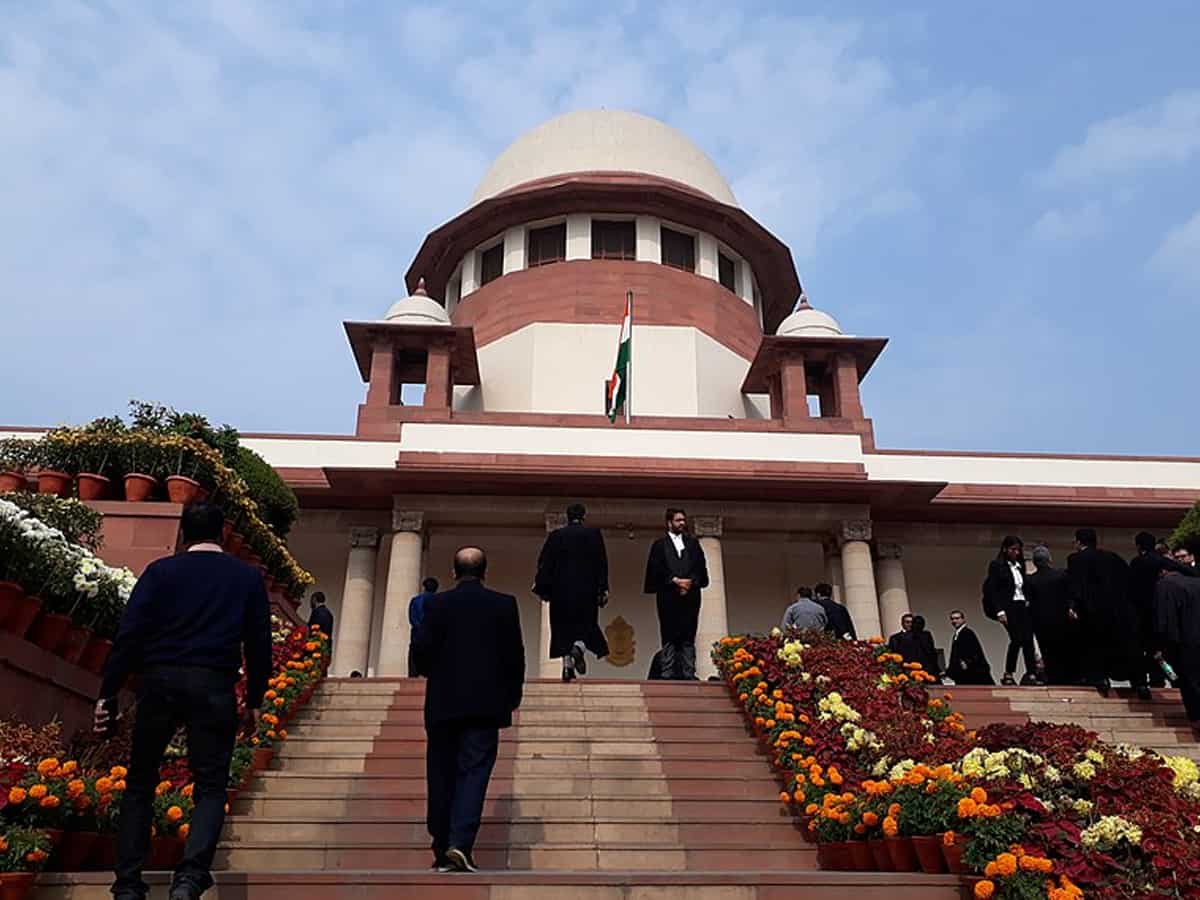
New Delhi: The Supreme Court on Wednesday held that practitioners of alternative systems of medicine such as Ayurveda are not entitled to equal pay with allopathic doctors as they not are involved in performing emergency duties and complicated surgeries.
Setting aside a Gujarat High Court order, the top court said the emergency duty that allopathy doctors are capable of performing and the trauma care that they are able to provide cannot be performed by Ayurveda practitioners.
It noted that even post-mortem or autopsy is not carried out by Ayurveda practitioners.
The apex court was hearing a batch of appeals challenging a 2012 Gujarat High Court order which had held that Ayurveda practitioners are entitled to be treated at par with doctors with MBBS degrees.
While recognising the importance of Ayurveda practitioners and the need to promote alternative or indigenous systems of medicine, the top court said that it cannot be oblivious of the fact that both categories of doctors are certainly not performing equal work to be entitled to equal pay.
A bench of Justice V Ramasubramanian and Justice Pankaj Mithal said allopathy doctors are required to perform emergency duties and provide trauma care.
“By the very nature of the science that they practise and with the advancement of science and modern medical technology, the emergency duty that allopathy doctors are capable of performing and the trauma care that they are capable of providing cannot be performed by Ayurveda doctors,” it said.
The apex court said it is also not possible for Ayurveda practitioners to assist surgeons performing complicated surgeries while doctors with MBBS degrees can perform the task.
“We shall not be understood to mean as though one system of medicine is superior to the other. It is not our mandate nor within our competence to assess the relative merits of these two systems of medical sciences. As a matter of fact, we are conscious that the history of Ayurveda dates back to several centuries.
“We have no doubt that every alternative system of medicine may have its pride of place in history. But today, the practitioners of indigenous systems of medicine do not perform complicated surgical operations. A study of Ayurveda does not authorise them to perform these surgeries. Similarly, a post-mortem or autopsy is not carried out by/in the presence of Ayurveda doctors,” it said.
The apex court said it is common knowledge that during out-patient days in general hospitals in cities or towns, doctors with MBBS degrees are made to attend to hundreds of patients, which is not the case for Ayurveda practitioners.
“Therefore, even while recognising the importance of Ayurveda doctors and the need to promote alternative/indigenous systems of medicine, we cannot be oblivious of the fact that both categories of doctors are certainly not performing equal work to be entitled to equal pay,” it said.



